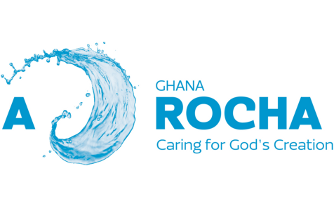Consultancy Services Required; National Evaluation Of CREMAs
Job Category Consultancy Service
Context
Ghana has for a long time been implementing a Collaborative Resource Management Policy promulgated in 2000 by the Wildlife Division of the Forestry Commission to give local communities governance and management responsibility and authority for natural resource management to enable them benefit directly. The strategy adopted has been to implement the Community Resource Management Area (CREMA) program, which comes with appropriate governance structures and instruments that create the enabling environment for community to sustainably manage natural resources in off-reserves areas.
According to existing records, more than 40 CREMAs in various stages of development have been established in Ghana. These CREMAs notwithstanding their good intentions, have not lived up to the expectations according to several CREMA and expert practitioners. The level and degree of the challenges and impact is however unknown as there has not been a national evaluation exercise to interrogate ongoing processes.
Several calls have been made for a national evaluation to be undertaken time and time again and very recently at the National Dialogue on CREMAs in October 2018. Clearly, several national and international needs of community empowerment for natural resource governance, biodiversity conservation and building climate resilience as well as addressing deforestation and forest degradation, present us with opportunities to ensure that after 20 years of implementing CREMAs, an evaluation is carried out. This evaluation will inform actions towards making CREMAs resilient to achieve the purpose for which the model was designed—more so when the CREMA mechanism has evolved from just governance and management of wildlife to encompass other natural resources within the CREMA spaces.
Significantly, strengthening of biodiversity governance is an important focal area in the Shared Resources Joint Solutions program (SRJS). Internationally also, community-based management models, including ICCAs, are recognized as important mechanisms for conservation and sustainable use of biodiversity, and to reach the CBD targets. For nearly 20 years, the Community Resource Management Area (CREMA) has been evolving as the primary mechanism for governance and management of natural resources in off reserve areas in Ghana. A new Wildlife Bill formalizes the CREMA mechanism and provides the specific regulations and management requirements. CREMAs are also seen as important building blocks to establish wildlife corridors, that connect Protected Areas and, in some cases, forest reserves as well. Although the benefits of CREMAs for wildlife and natural resource management are generally accepted, there is a need to substantiate them.
This evaluation therefore sets in motion a process to engage and assess the CREMAs as functioning social-ecological units since it the first one was established around the Ankasa Conservation Area.
This national evaluation will make an assessment of various aspects, i.e. benefits for natural resources – wildlife and other natural resources vegetation, benefits for local livelihoods in particular, governance and management structures and instruments, challenges associated with the whole mechanism etc.
Please find attached Terms of Reference for National CREMA Evaluation
NB: Financial and Technical Proposals for this assignment should be submitted by close of day, 25th October, 2019.
